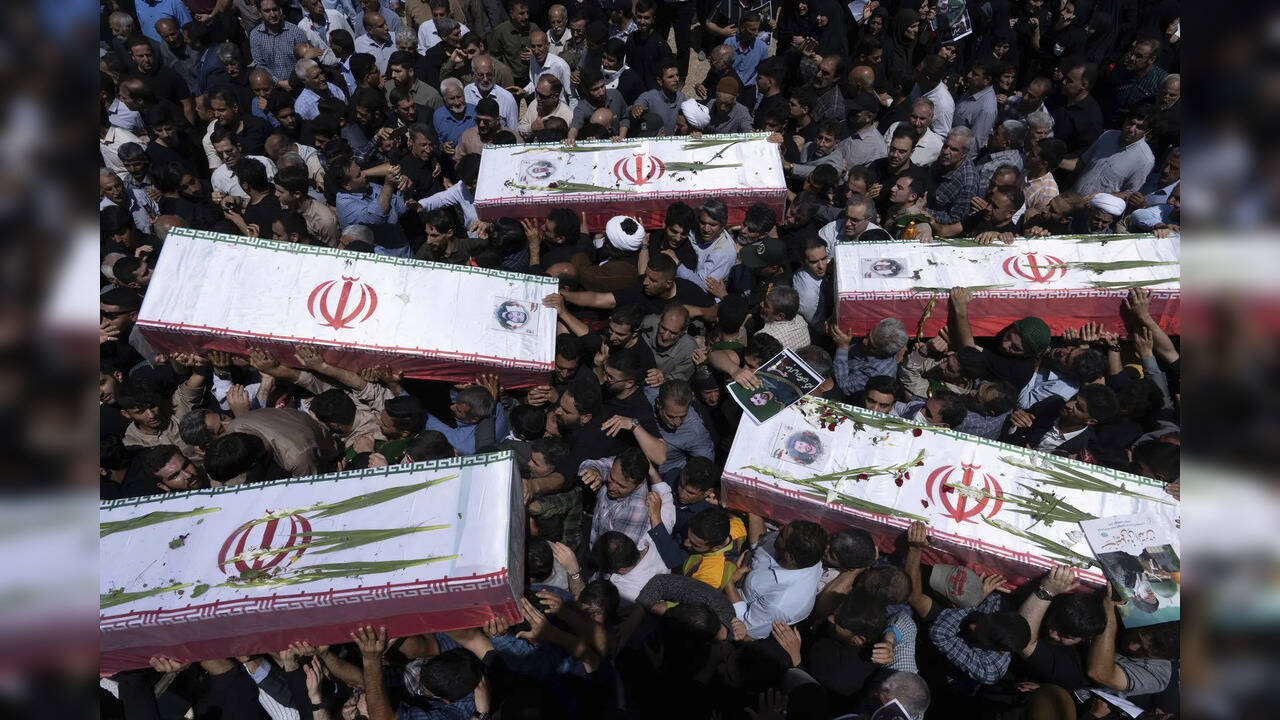
Mourners carry the flag-draped coffins of five men, whose names were not immediately available, reportedly killed in Israeli strikes, during their funeral in the city of Khorramabad, Iran, Monday, June 16, 2025. (AP Photo/Aziz Babanezhad/Tasnim News Agency)
As missiles by Iran and Israel criss-cross their Arab neighbours igniting concerns of a widespread regional conflict, Syria has so far remained officially silent. This despite the missiles from both countries regularly traversing Syrian airspace near Damascus, prompting speculation over its political and military calculus.
Since Israel’s offensive last week, the rulers of Saudi Arabia and the United Arab Emirates — the region’s biggest economies — have stayed close to their regional rival Tehran as they frantically try to avoid being engulfed in the war on the other side of the Gulf.
Experts suggest Syria’s silence stems from necessity rather than a calculated policy.
He pointed out that while Syria cannot abandon its traditional alliance with Iran, it realizes that direct or even verbal involvement in this confrontation could expose it to broader Israeli strikes than usual at a time when Syria’s air defenses are insufficient to protect the entire country’s skies.
“Moscow has warned Damascus against overt involvement or allowing any party to openly use its territory against Israel, as this could lead to uncontrollable escalation and put Russia’s own military presence at risk,” a Western diplomatic source in Beirut told The Media Line.
Russia maintains a large military footprint at the Hmeimim air base in Syria’s Latakia province. An open confrontation, Moscow fears, could destabilise what remains of Syria’s fragile stability.
Regime Fears the Domestic Fallout
With the Syrian economy collapsing and Western sanctions still in place, observers feel that even symbolic involvement could plunge parts of the country back into chaos, particularly Daraa, Suwayda, and the coastal region, where residents are already facing severe economic strain.
A government official who declined to be named echoed that sentiment. Speaking to The Media Line, the source said: “Syria believes in every nation’s right to defend its land and views the current events in the region as a direct result of Israel’s aggressive policies towards the region’s states and their populations over decades. Nevertheless, Syria will not be a party to a conflict that does not serve its own stability and the safety of its people, who have paid a high price during years of war. We remain committed to our sovereignty and do not allow our lands or airspace to be used by any party without our approval. At the same time, we also do not forget Iran’s negative role in Syria.”